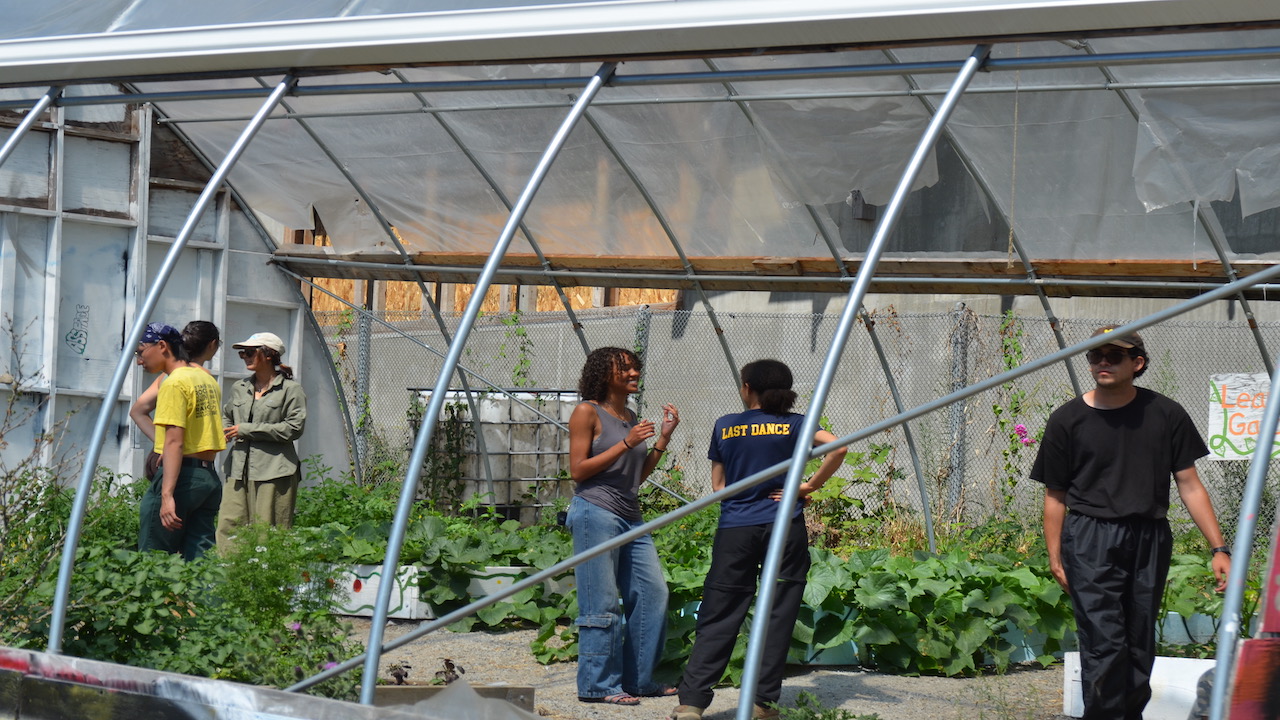Why urban farms are necessary for racial justice and sustainability
What’s all the hype about urban farms and gardens? Well, they’re awesome! In fighting issues such as racial injustice, climate change, and food apartheid, urban farms and those who run them do a great job of working toward goals that address these problems while engaging in sustainable work. A new urban farm is set to be opened in the Northeast Quadrant of Rochester, which is one of the most densely populated areas in the city, yet options for grocery stores are scarce.
After a quick Google Maps search for grocery stores in Rochester, you’ll see that there is not a single grocery store in the area of the Northeast Quadrant, aside from a few convenience stores and mini marts. While this is already disturbing, you can compare this map to the racial makeup of Rochester by visiting bestneighborhood.org, where it becomes quite clear that the absence of grocery stores in the Northeast Quadrant correlates strongly with the majority Black and Hispanic population in that area. Compared side by side, it is easier to see how race may be associated with food access. The idea of food insecurity and food apartheid captures the inaccessibility of healthy, nutritious, and culturally relevant foods in neighborhoods that contain minority groups. Instead, these areas are flooded with fast food restaurants, corner stores, and liquor stores, therefore increasing the amount of unhealthy food that people consume, as well as the adverse health outcomes that these groups experience.
What does this have to do with sustainability? Large producers of food prioritize profit and efficiency in maintaining food systems, while the least important factors in determining what is available to people are health and cultural importance. Those who have the most access to healthy food are white and upper-class. In the midst of a capitalistic and consumption-heavy culture, food has become about production, money, and material. This is unsustainable at its root, since overproduction, food waste, and environmental degradation intersect in the agricultural food system.
Community led farms offer one way of resisting the control of industrial food production and providing food for marginalized groups more sustainably. Through community gardens and farms, residents are able to choose what foods they would like to eat, know where their food comes from, and engage in meaningful food practices. Only what is needed is grown, which lessens food waste. An unnecessary amount of fertilizers and pesticides aren’t sprayed on the food, which maintains the health and quality of the soil and the surrounding ecosystem. When food production and practices are community-led, the price of healthy food isn’t hiked up to make profit; it is made more affordable so that the community is fed.
The Cornell Cooperative Extension of Monroe County is part of a nonprofit organization administered by Cornell University and a partnership between governments to provide local residents with education and tools on a wide range of topics including health, nutrition, agriculture, and families. The organization offers many educational programs about farming, gardening, and nutrition, and is planning to run a new urban farm on a vacant city lot. The farm is aiming to employ local residents and help develop work-readiness skills.
Small, local solutions may present a viable option for achieving missions both related to sustainability and food sovereignty, which are inextricably linked. Decentralizing food production makes it more sustainable and increases access for groups of people who have been historically denied healthy food for themselves and their families. Sustainable food practices is one big step towards creating a more sustainable and climate-resilient world. If you are able to, go volunteer at a community garden or farm in Rochester or your own home!
Written by Carmen Marshall ‘25
Photo by Carmen Marshall

